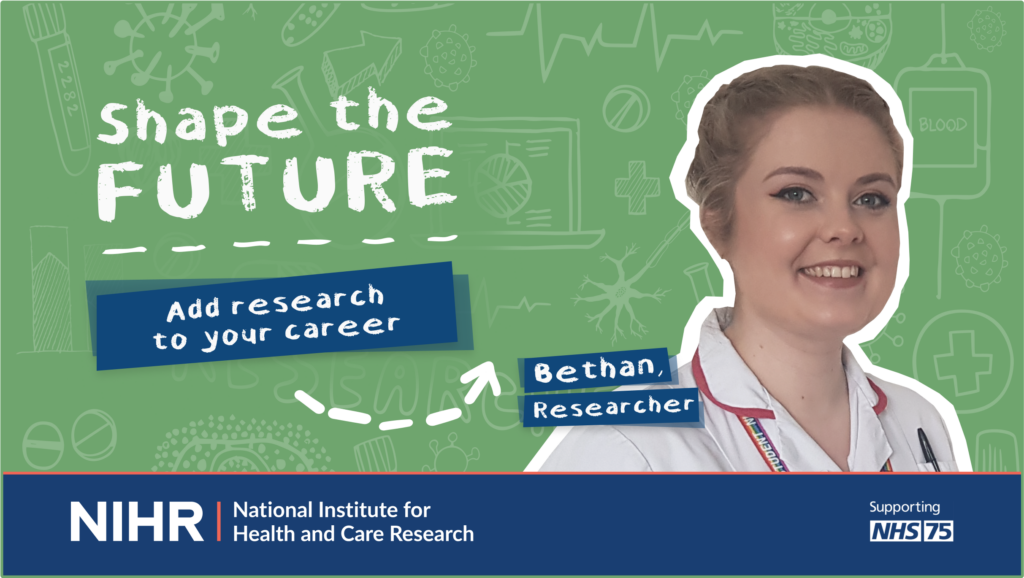Research nurses “the key to study delivery”
The publication of a small research study completed during his Master’s in the early noughties was enough to give Dr Adrian Boyle the research bug.
The Consultant in Emergency Medicine at Addenbrooke’s said: “It was a small study and in fact not even very exciting, but it made me want to discover new ways of looking after patients.
“I saw the benefits of research on patient care, and wanted my department to take part in big multi-centre trials.”
His initial attempts met with failure: “In 2005, the international study CRASH-2 opened, looking at the effect of the generic drug tranexamic acid (TXA) on mortality in bleeding trauma patients.
“I wanted our department to join but the logistics were too difficult, the processes were too complicated, and this really important study was done without us.”
Launch of NIHR
Then in April 2006 the NIHR (which was then called the National Institute for Health Research) was created under the government’s health research strategy, Best Research for Best Health.
Adrian said: “The launch of the NIHR and its funding for dedicated research nurses was a game-changer.
“Yes, it took some time to embed our research nurses and initially they were employed on short-term contracts.
“But we got interesting results from the studies we took part in, which built up our reputation.
Changing standard of care
“Then when CRASH-3 started in 2012, we were in a position where we could take part, and we recruited more than 150 patients, one of the best recruiting sites worldwide.
“This trial showed that giving TXA to people with head injuries actually saved lives.
“As a result this is now a standard of care around the world, and in the UK TXA is given to everyone with a major head injury.”
Embedding a research team
The Emergency Department at Addenbrooke’s currently has three research nurses, with a combined working full-time equivalent of 2.2 nurses.
Kerry Meynell is one of the research nurses. She said: “I love the research we do, and what we achieve, and working in a team who are all trying to make a difference to healthcare.” The role’s flexibility is also a big plus for Kerry: “My husband’s in the army and we have three children, so I really need a role that not only gives me job satisfaction but also work/life balance so I can fit it around my family life.”
Another key member of the team is the administrator, Audrey.
Kerry said: “With research there’s a huge amount of paperwork, record-keeping and associated tasks to complete. The research nurses used to do them all but having Audrey on board means we can spend more time on educating staff and patients/families about the research and on recruitment.”
Adrian added: “When I look back over the last two decades, research delivery has improved beyond all recognition. When I started as a consultant at Addenbrooke’s, it was very much a case of here’s a study, here’s some money, now go and recruit a research nurse to do that study.
“And this was a really time-consuming, inefficient process.
“Now we have support from embedded research nurses, we also have regular access to our local NIHR Portfolio Support Manager, who’s been invaluable in terms of planning and supporting our studies.
Successful model
“We’ve shown the model works. You don’t have to shift the dial very much in terms of either the money or the support to create an embedded team in the clinical team.
“And that leads to more research capability. In the emergency department we’ve grown from having just one or two studies open to six to eight studies open at the same time, including a head injury study, chest studies around pneumothoraces and an infection study screening for severe infections.
Preventative research
The research that takes place in the Emergency Department is not all to do with major health events such as trauma, heart attacks and strokes; it can also be preventative and the embedded research nurses are ideally placed for this kind of research. Kerry explained: “One of the first trials I worked on was the CoSTED trial. While patients were in the waiting room, I approached them to discuss their smoking status.
“It was a good opportunity to prompt positive behaviour change. The patient’s in Emergency Department, they’re thinking about their health and the consequences of their lifestyle, so it can be an ideal time to talk about stopping smoking and the help which is available.”
Transforming research delivery
Adrian said: “The step change in research delivery has been a career highlight for me.
“We’re now at that level of organisation and support where we can run big studies very quickly and efficiently, as was seen in the pandemic, when we ran diagnostic studies trialling new technologies for COVID-19 tests.
“This just wouldn’t have been possible without that built-in research nurse structure.
“This is good for UK science, it’s good for investment, we already had the access to patients and we now have an infrastructure which can do a lot of the research delivery.
“But the key to delivering any study are the research nurses. If we want to further transform research delivery in this country, investing in research nurses is absolutely the way to do it.”
- To celebrate the work and impact of the NHS research workforce, the NIHR has been running its Shape The Future campaign throughout November – find out more here: https://www.nihr.ac.uk/explore-nihr/campaigns/nhs-75/




